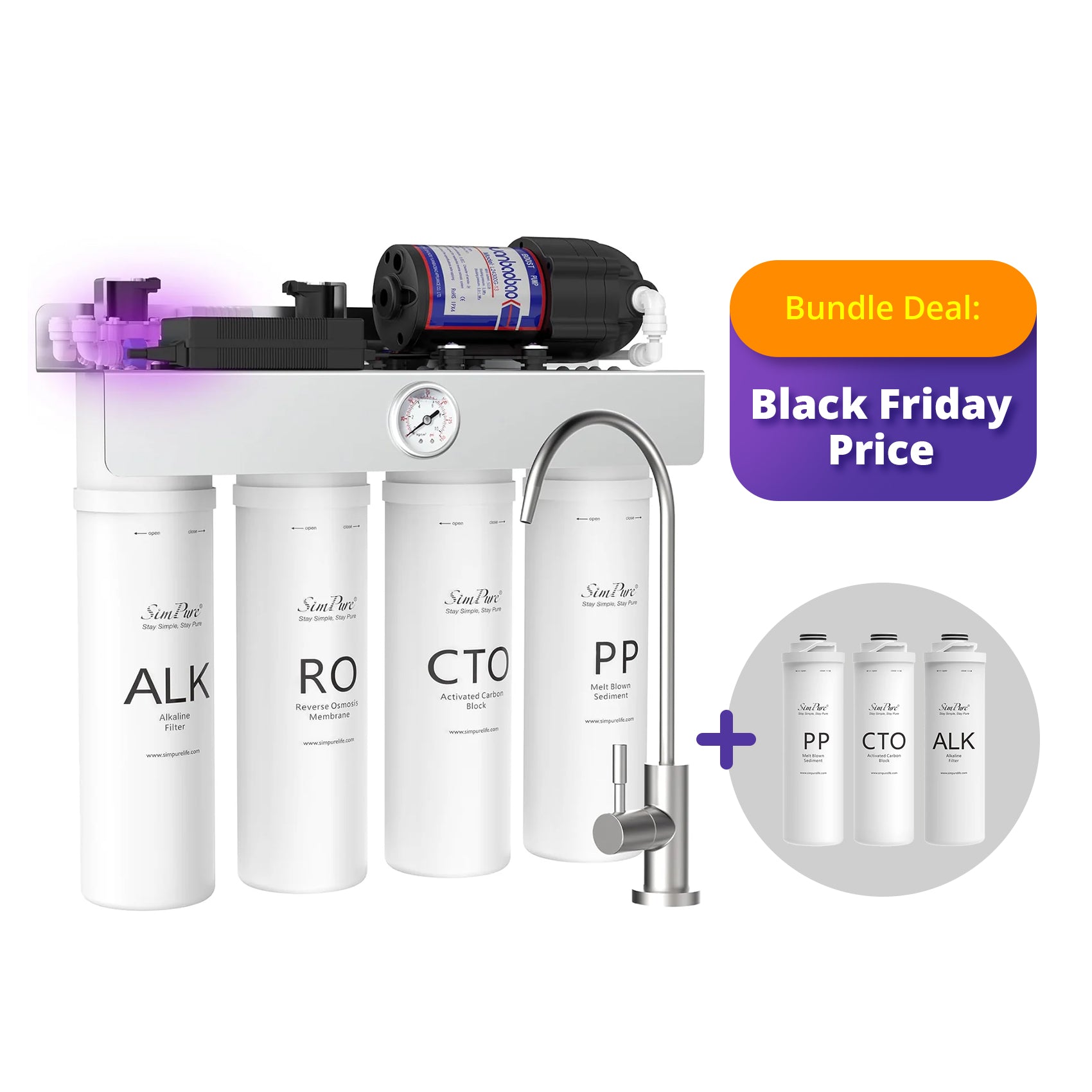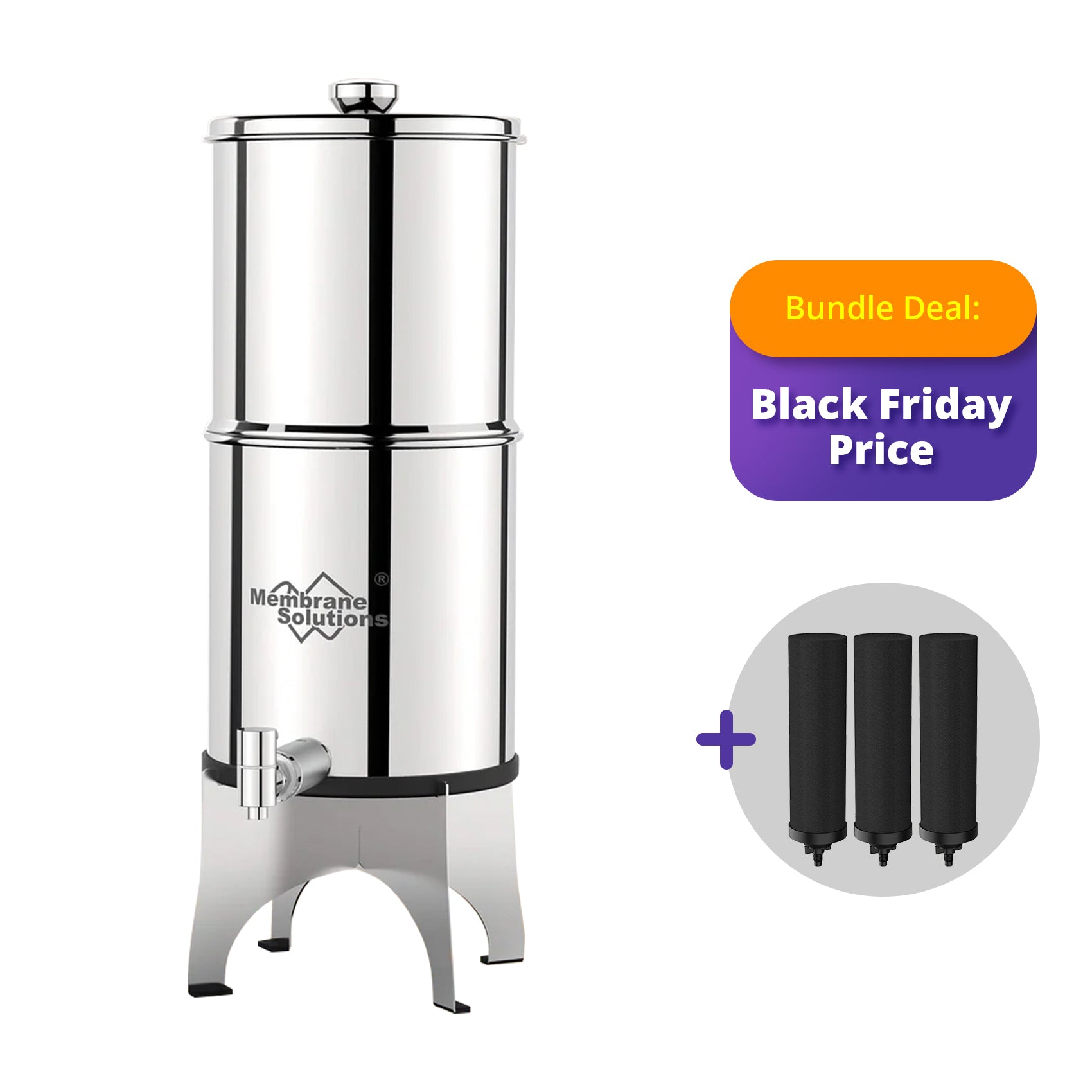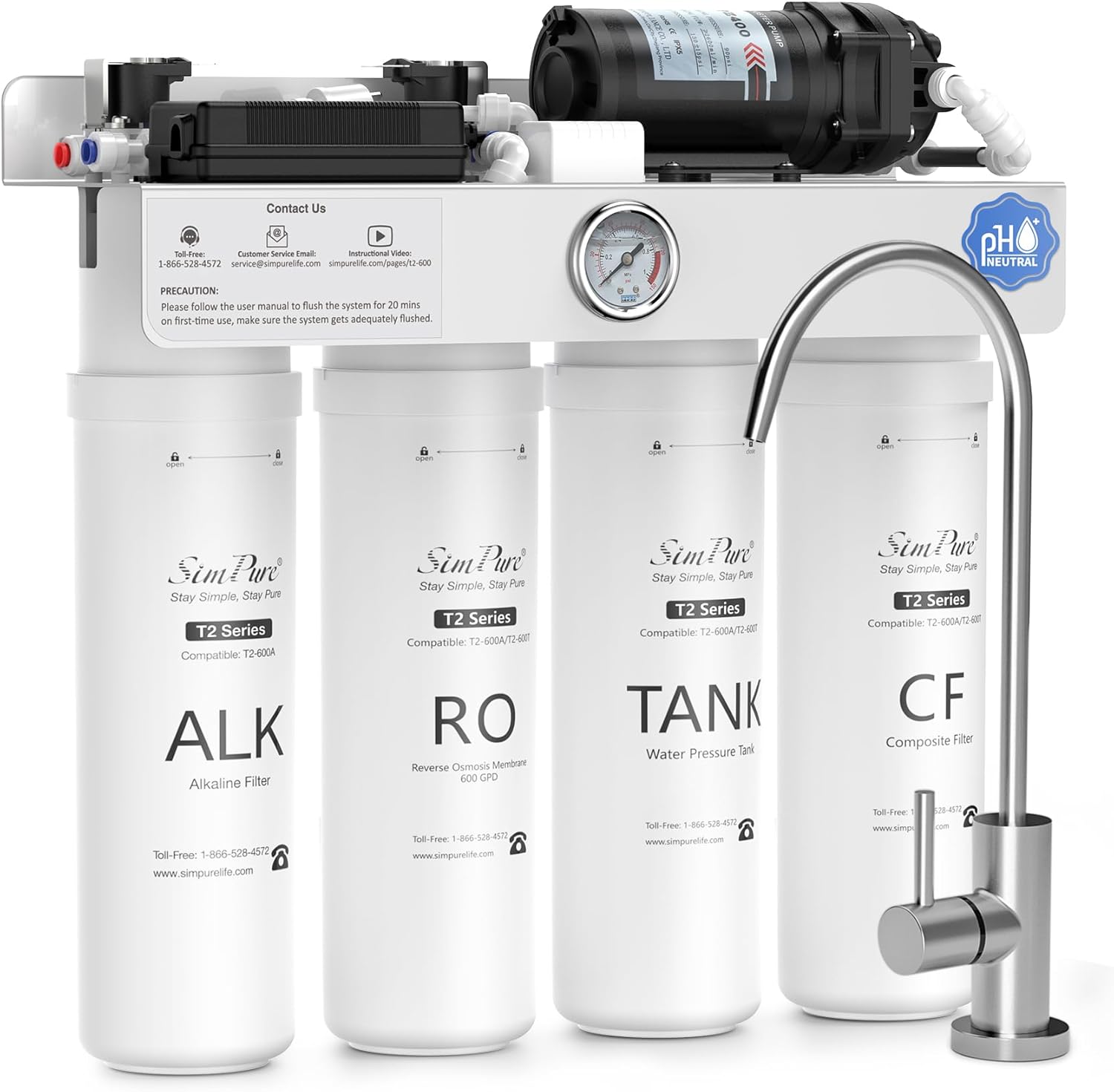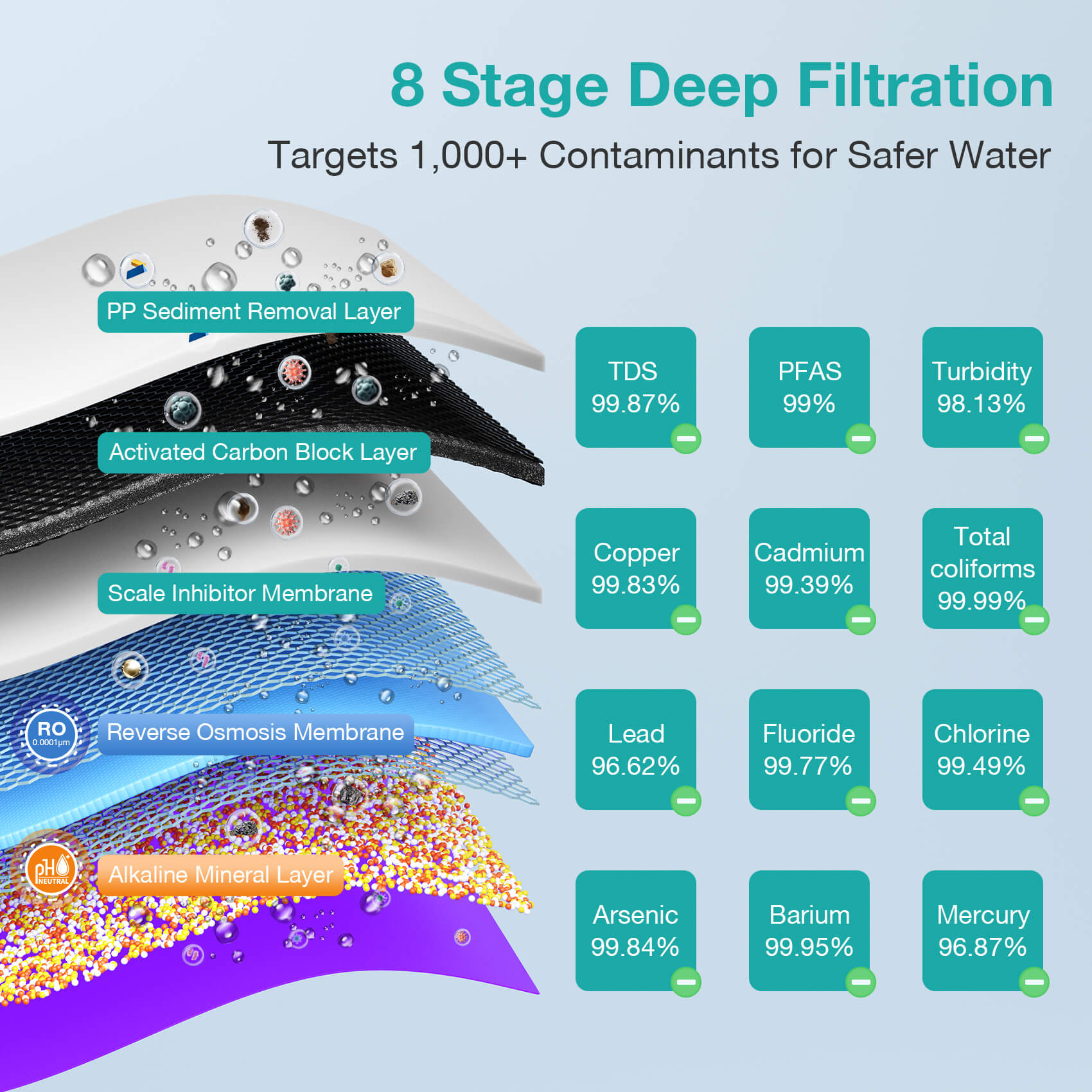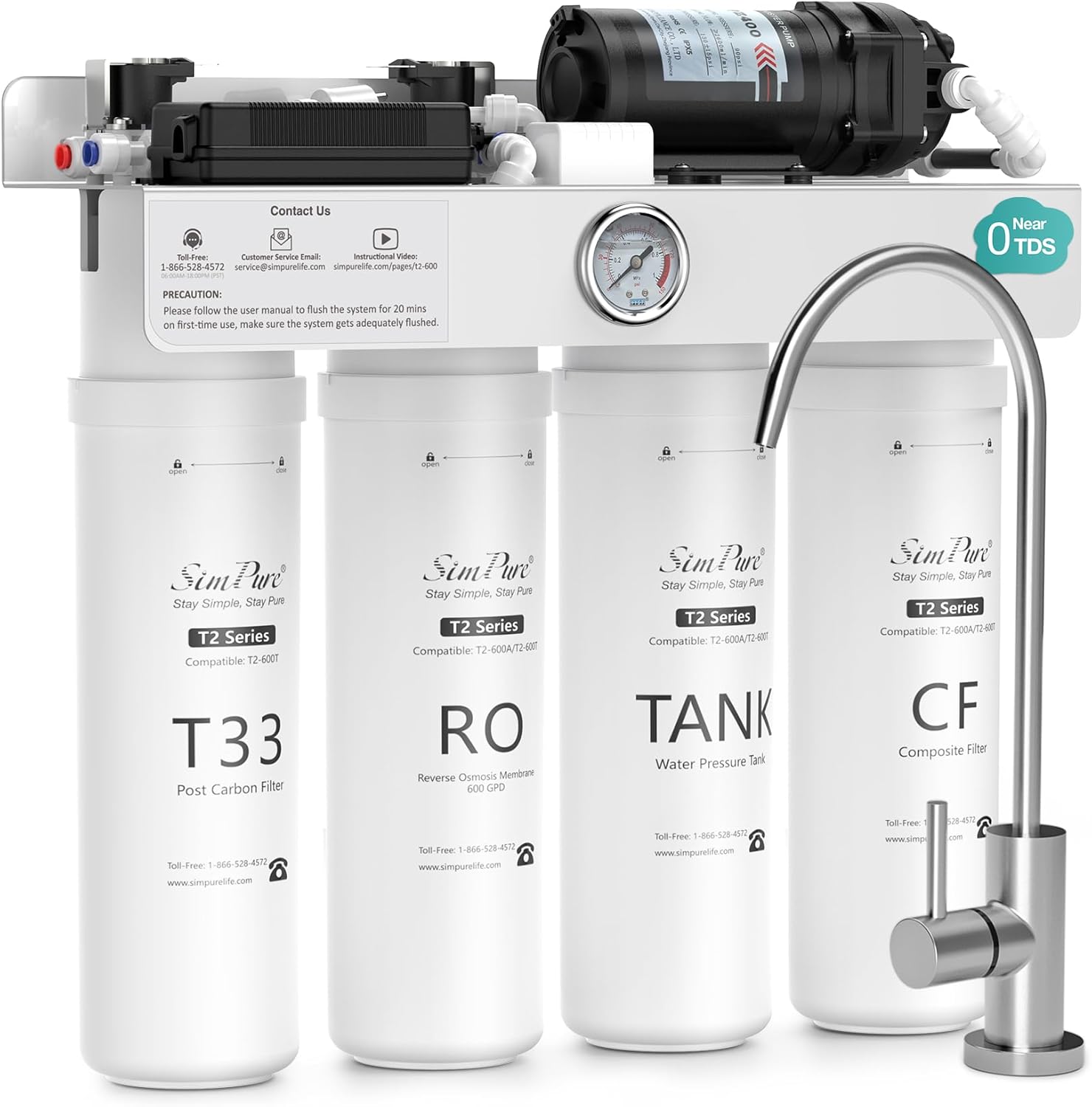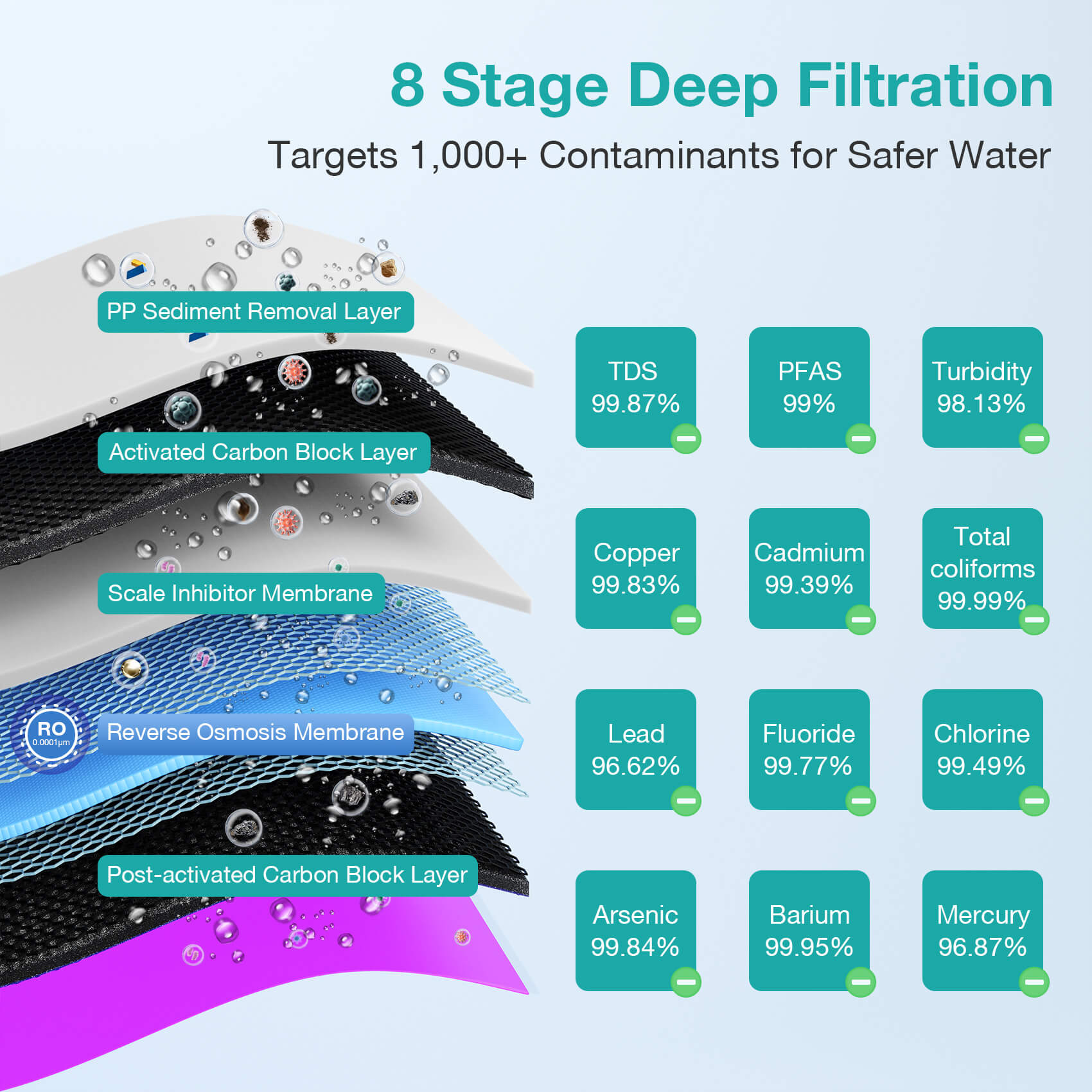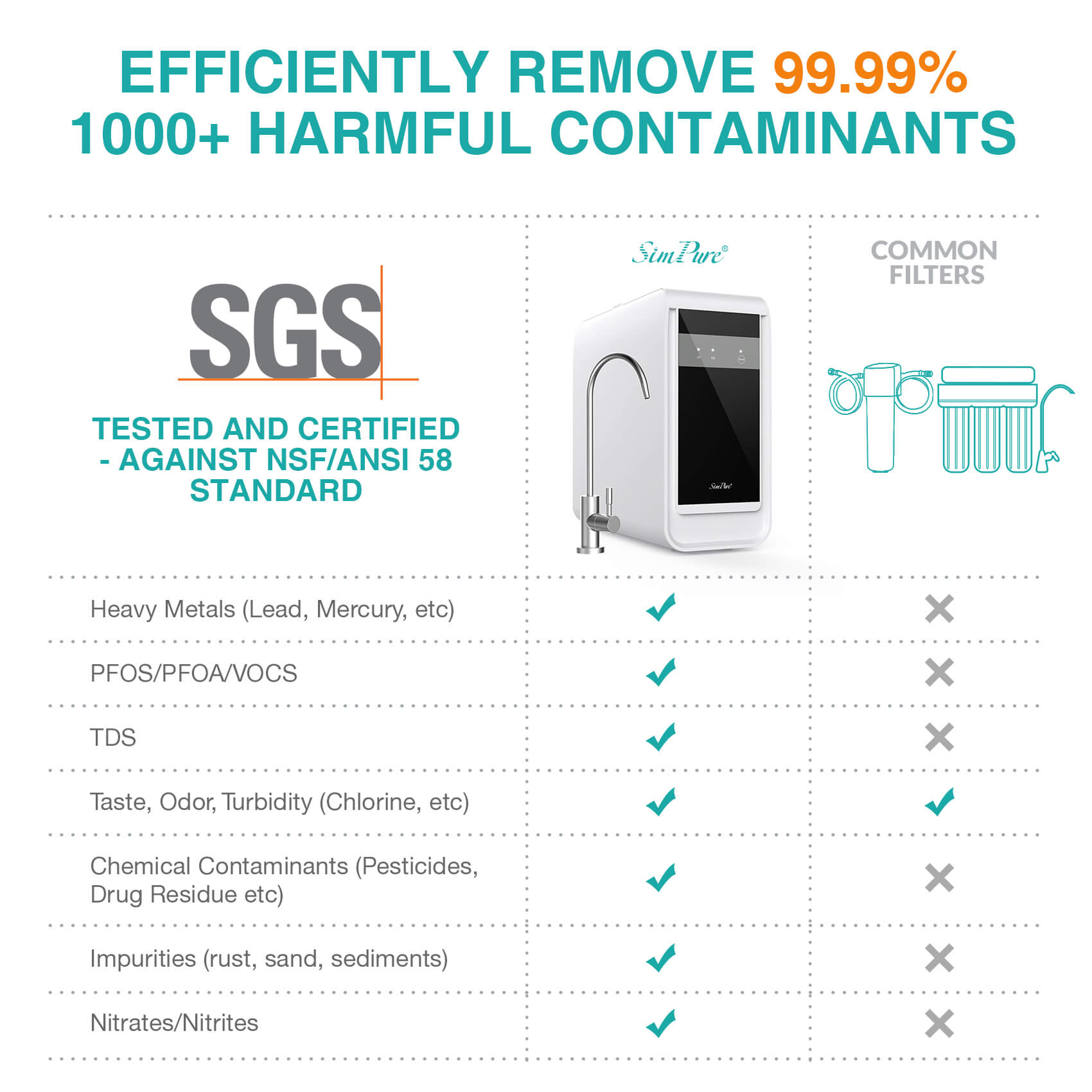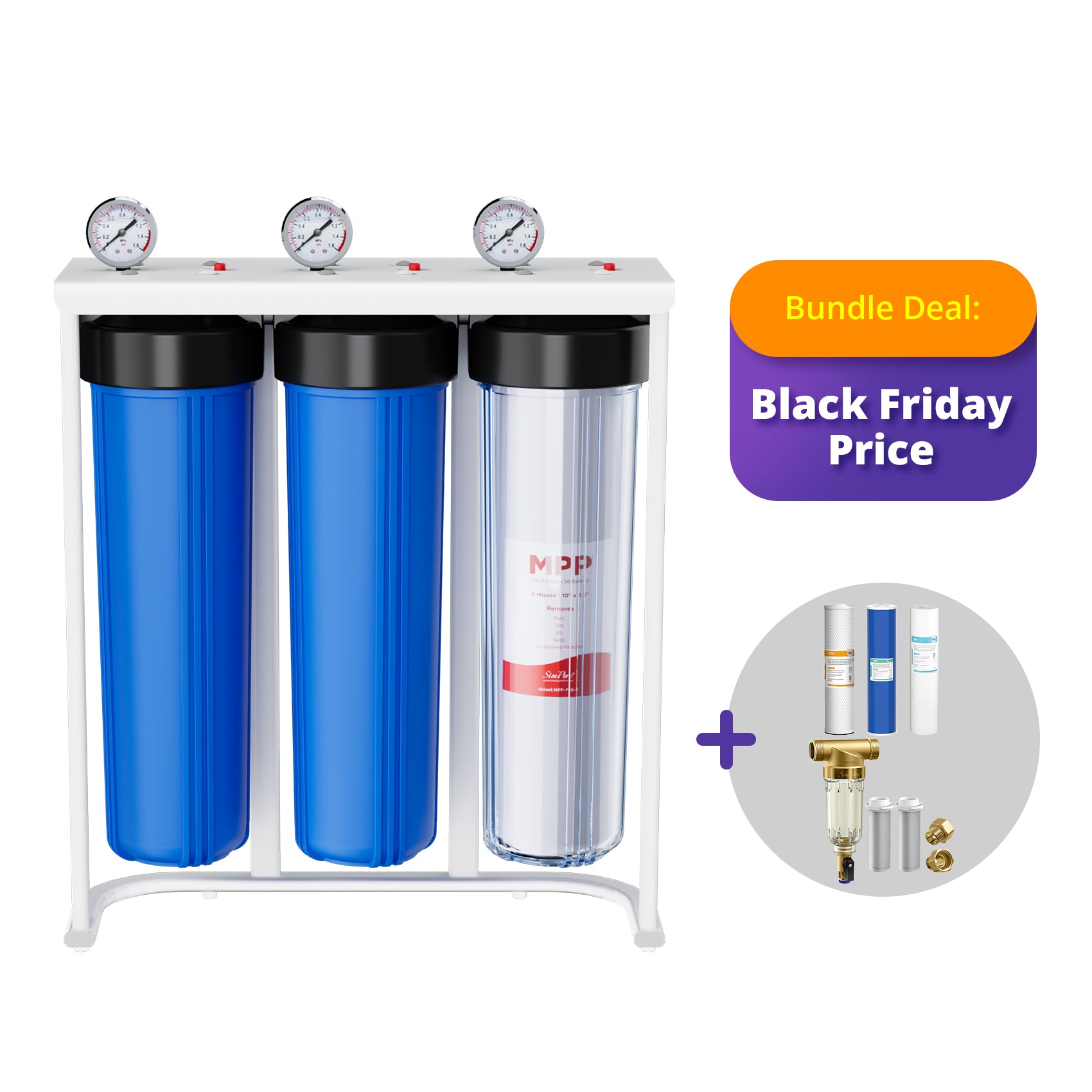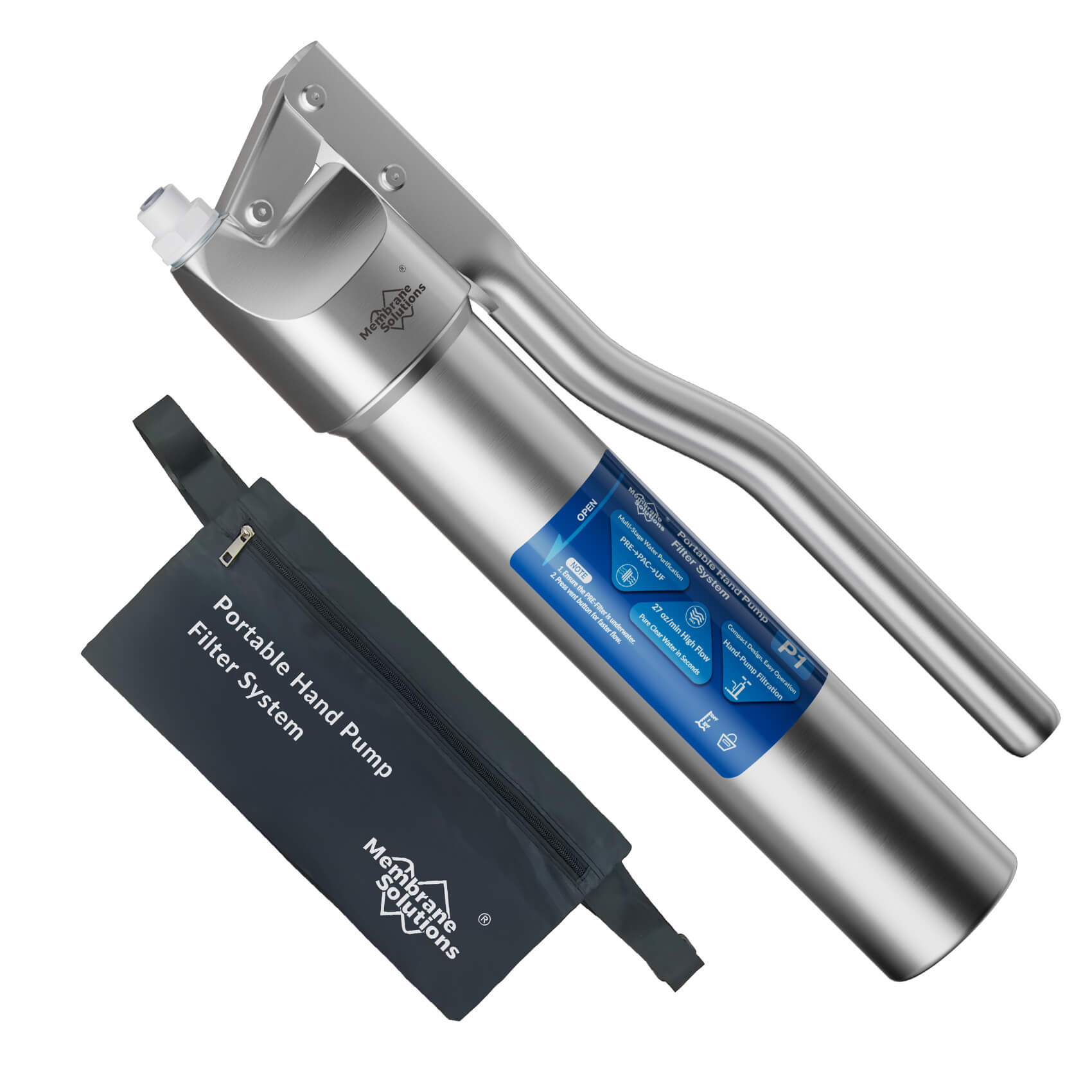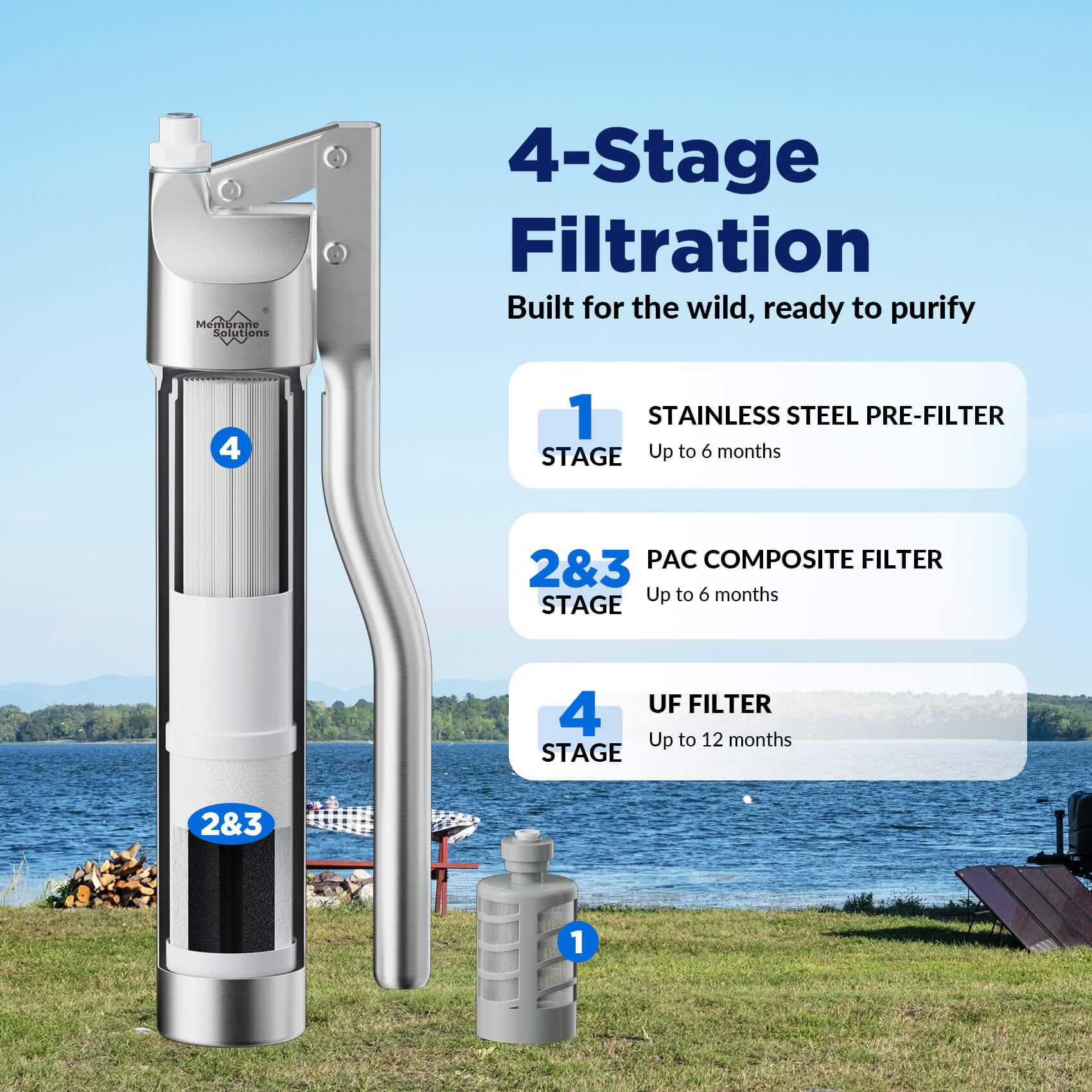How to add minerals to RO water naturally? When it comes to water, some people think minerals are more than just additives – they are essential for our bodies' proper functioning. Calcium, magnesium, and other minerals contribute to bone health, muscle function, and even nerve transmission. However, the reverse osmosis water filtration systems commonly used to purify water can inadvertently remove these crucial minerals. That's why it's vital to understand the importance of maintaining a mineral balance in RO water. In this article, we will provide practical ways on how to remineralize reverse osmosis water.
Common Minerals Found in Drinking Water
Minerals are naturally present in the Earth's crust and can dissolve into water as it comes into contact with rocks and soil. When water passes through underground layers, it can pick up minerals such as calcium, magnesium, and potassium, among others.
The water source itself, such as underground aquifers or surface water bodies, can contain minerals. These minerals may have been naturally present in the water source or derived from the surrounding environment.
Our drinking water, whether from the tap or other sources, contains various minerals that contribute to its composition. These common minerals found in our drinking water play a crucial role in promoting overall health and wellness. Among the minerals commonly present are calcium, magnesium, potassium, sodium, and zinc. The specific presence of these minerals in drinking water can be attributed to various factors and sources.
Why Consider Adding Minerals to RO Water?
Although common drinking water sources often contain minerals, it's important to note that the reverse osmosis (RO) filtration process employed in many water purification systems can strip away these valuable minerals. If you have already read our previous blog Does Filtered Water Have Minerals, you should understand why the answer is No. While reverse osmosis (RO) water filtration systems effectively remove contaminants, they also filter out beneficial minerals naturally present in water. We do not suggest you increase your minerals intake by drinking water, but there are actually some specific compelling reasons for us to consider reverse osmosis remineralization:
1. Offer Nutritional Value
Minerals are essential nutrients that our bodies require for various physiological functions. By adding minerals back to RO water, it may offer nutritional value. Minerals like calcium, magnesium, and potassium play crucial roles in maintaining bone health, supporting muscle function, and regulating bodily processes. Consuming proper mineral-rich water ensures that we obtain these essential nutrients and contribute to our well-being.
2. Adjust pH Balance
RO water tends to be slightly acidic due to the removal of minerals. For detailed info about the pH of RO water, you can check our blog: What Is the pH of RO Water? By adding minerals back to RO water, we can help restore a more balanced pH level. Alkaline minerals, such as calcium and magnesium, can raise the pH level of water, making it less acidic and more neutral. Balanced pH levels can have a positive impact on digestion, metabolism, and cellular function in the body.
3. Better Taste and Enjoyment
Minerals contribute to the taste and mouthfeel of water. RO water, while clean, can sometimes taste flat or lack the refreshing qualities associated with mineral-rich water. By adding minerals back to RO water, we enhance its taste, making it more enjoyable to drink. This can encourage increased water consumption, leading to better hydration and improved health.
4 Natural Ways to Add Minerals to RO Water
With the significance of mineral supplementation in RO water in mind, let's delve into four natural approaches to reintroducing minerals, ensuring a healthier and more balanced drinking water experience.
1. Install a RO System with a Built-In Alkaline Filter
For those seeking a more convenient solution, an effective option is to enhance the mineral content of reverse osmosis water with a remineralizing filter.
The SimPure Y9A is a stylish countertop RO system with built-in remineralization. It's compact, easy to install, and ideal for apartments or offices. It ensures every glass of water tastes clean, balanced, and mineral-enhanced. Click the picture to learn more about SimPure Y9A! For more countertop models, you can also check our newly arrived: SimPure Y7T-A 5-Stage Countertop RO System with Portable Glass Water Pitcher & Extra Alkaline Remineralization.
For under-sink installation, the SimPure T1-400 ALK provides high-capacity filtration with remineralization. This tankless system saves space while delivering clean, alkaline water straight to your kitchen faucet. Click the picture to learn more about SimPure T1-400 ALK !
SimPure T1-6 6-stage reverse osmosis system with an additional alkaline filter is also a remarkable solution for mineralizing RO water. This advanced system offers numerous benefits, including. Unlike regular 5-stage RO systems, the T1-6 system's alkaline filter adjusts the water's pH to a neutral range of 7.5-9. This ensures a more balanced and less acidic drinking water experience; The T1-6 system utilizes Active Minerals technology to replenish vital minerals such as calcium, potassium, and magnesium. This enhances the taste and quality of the water, making it more refreshing and natural.
2. Use Mineral Stones or Mineral Cartridges for Natural Remineralization.
Using mineral stones or mineral cartridges is also a natural method to add minerals to RO water. These specially designed stones or cartridges are crafted to release trace minerals into the water, enhancing its mineral content. To use mineral stones, simply place them in a container or pitcher filled with RO water and allow them to infuse for a few hours or overnight. For mineral cartridges, follow the manufacturer's instructions to incorporate them into your RO system. Both methods provide a natural and convenient way to reintroduce essential minerals into your RO water, improving its taste and overall quality.
3. Add Mineral Drops or Liquid Mineral Supplements to Ro Water
For a simple and effective method of adding minerals to your RO water, consider using mineral drops or liquid mineral supplements. These products are specially formulated to provide essential minerals in concentrated forms. To use mineral drops, follow the recommended dosage instructions and add the drops to your RO water. Mix well to ensure proper dispersion of the minerals. Liquid mineral supplements can be added directly to your RO water according to the provided guidelines. This convenient approach allows you to easily enhance the mineral content of your water, ensuring you receive the necessary nutrients.
4. Infuse RO Water with Fruits, Herbs, or Edible Flowers.
An enjoyable method to naturally infuse RO water with minerals is by incorporating fruits, herbs, or edible flowers. Cut up your favorite fruits such as strawberries, blueberries, or slices of cucumber, and add them to a pitcher of RO water. Enhance the flavor profile by including herbs like mint, basil, or thyme. For a touch of elegance, consider adding edible flowers such as rose petals or chamomile. Allow the mixture to infuse for a few hours, allowing the water to absorb the flavors and minerals. This infusion not only adds a refreshing taste but also imparts natural minerals and antioxidants to your water.
In conclusion, adding minerals to RO water naturally is crucial for maintaining a healthy mineral balance and enhancing the quality of your drinking water. By following the suggested methods, such as using SimPure Y9A countertop RO system, you can enhance the taste and nutritional value of your drinking water. However, it's important to remember that mineral water should be consumed as part of a balanced diet. Ensure you include a variety of mineral-rich foods in your meals to meet your body's overall mineral requirements.







